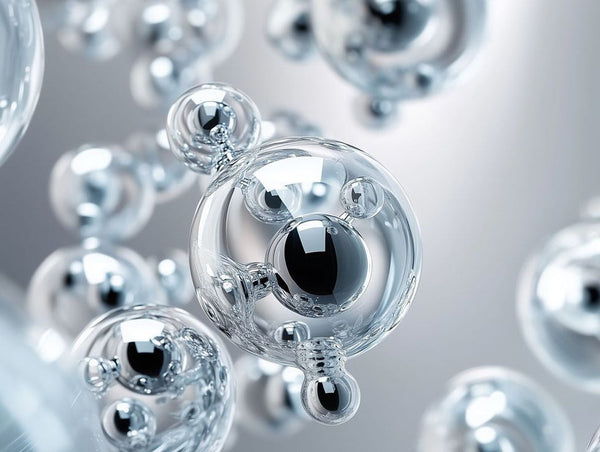Menstrual cramps, also known as dysmenorrhea, are a common occurrence experienced by many women during their reproductive years. Despite being an uncomfortable and at times painful part of a woman's menstrual cycle, menstrual cramps are often considered a necessary evil.
Understanding Menstrual Cramps
Menstrual cramps can be described as the periodic pain or discomfort felt in the lower abdomen and pelvis during menstruation. While the intensity of the pain can vary from woman to woman, it is often accompanied by a range of physical and emotional symptoms that can significantly impact daily life.
For some women, menstrual cramps are a minor inconvenience that can be managed with over-the-counter pain medication and heating pads. However, for others, the pain can be debilitating, leading to missed work or school days and a decreased quality of life. Understanding the underlying causes of menstrual cramps can help individuals find effective ways to manage and alleviate their symptoms.
How Menstrual Period Cramps Occur
Menstrual cramps or period pain is caused by the contractions of the uterus as it sheds its lining during menstruation. These contractions are caused by the release of natural chemicals known as prostaglandins, which help regulate uterine contractions and control inflammation. These contractions can vary in intensity, from mild discomfort to debilitating pain that interferes with normal activities.
In addition to prostaglandins, other factors such as hormonal imbalances, genetics, and lifestyle choices can also influence the severity of menstrual cramps.
Maintaining a healthy diet, staying hydrated, and engaging in regular exercise can help support overall reproductive health and potentially reduce the intensity of cramps.
The Emotional Impact
Not only do menstrual cramps cause physical discomfort, but they can also have a profound emotional impact. Many women experience:
- Mood swings
- Irritability
- Fatigue
It is essential for individuals experiencing severe menstrual cramps to seek support from healthcare providers who can offer personalized treatment options.
Recognizing the Symptoms of Menstrual Cramps
Identifying the symptoms of menstrual cramps is crucial in understanding and managing this condition effectively. Menstrual cramps, also known as dysmenorrhea, affect millions of women worldwide and can significantly impact daily activities and quality of life.
Physical Indicators
Common physical symptoms include:
- Lower abdominal pain
- Backache
- Headache
- Bloating
- Breast tenderness
These symptoms typically occur a few days before menstruation and can last for several days into the menstrual cycle.
Emotional and Psychological Signs
The hormonal changes during the menstrual cycle can contribute to these emotional fluctuations. In addition to physical symptoms, many women experience emotional and psychological changes such as:
- Mood swings
- Irritability
- Anxiety
- Depression
- Difficulty concentrating
These symptoms can vary in severity and intensity from one person to another. Managing stress, getting adequate rest, and engaging in relaxation techniques can help alleviate some of the emotional symptoms of menstrual pain.
Unraveling the Causes of Menstrual Cramps
Understanding the underlying causes of menstrual cramps is essential in developing effective treatment strategies. Menstrual cramps, or period pains affect a large percentage of menstruating women at varying degrees and can significantly impact their quality of life each month.
Hormonal Factors
Hormonal imbalances, particularly high levels of prostaglandins, contribute to the intensity and duration of menstrual cramps. Additionally, elevated levels of estrogen and progesterone can further exacerbate the symptoms. Prostaglandins are hormone-like substances that play a key role in the contraction of the uterine muscles. An excess of prostaglandins can lead to stronger, more painful contractions, resulting in heightened discomfort during menstruation.
Lifestyle and Dietary Influences
Lifestyle choices such as smoking, excessive alcohol consumption, stress, and a sedentary lifestyle can all be the cause of menstrual cramps.
Stress
Stress can trigger the release of cortisol, a hormone that may increase inflammation and pain sensitivity in the body.
Diet
Furthermore, a diet high in processed foods, caffeine, and excessive salt intake may worsen the symptoms by promoting water retention and inflammation in the body.
Inflammation
The inflammation of female reproductive organs like the ovary, fallopian tubes, etc. is mainly caused by sexually transmitted disease-causing bacteria, and hence, may be the cause of menstrual pain.
Small Cervix
In some women, the cervical opening is so small that it interferes with the menstrual flow pressure, causing severe period pains.
Potential Complications of Menstrual Cramps
While menstrual cramps are often regarded as a normal part of the menstrual cycle, they can lead to various complications that disrupt a woman's daily life and potentially impact her long-term health.
It is essential to recognize when the pain and discomfort associated with period pains exceed normal levels and may signify an underlying issue that requires medical attention.
Effect of Menstrual Cramps on Daily Life
Severe period pains can significantly interfere with daily activities, including work, school, and social engagements. The pain and discomfort may require women to take time off or limit their participation in certain activities.
In addition to physical discomfort, severe menstrual cramps can also have a profound impact on a woman's mental and emotional well-being. The constant pain and disruption to daily life can lead to feelings of frustration, anxiety, and even depression.
Long-Term Health Risks
Persistent and severe menstrual cramps may indicate an underlying medical condition such as
- Endometriosis
- Uterine fibroids
- Pelvic inflammatory disease
If left untreated, these conditions can potentially lead to fertility issues or chronic pain.
It is important for women experiencing debilitating menstrual cramps to consult with a healthcare provider to determine the underlying cause and explore treatment options. Early intervention can help prevent long-term health complications and improve quality of life.
Exploring Treatment Options for Menstrual Cramps
Individuals need to explore various treatment options to find what works best for them. In addition to medical interventions and natural remedies, understanding the underlying causes of menstrual cramps can also help in developing an effective treatment plan tailored to individual needs.
Lifestyle Changes and Natural Remedies for period Cramps
Many women find relief through natural remedies and lifestyle modifications. These include:
- Applying heat to the lower abdomen
- Practicing relaxation techniques
- Engaging in a relaxation exercise
- Maintaining a healthy diet
- Herbal supplements
- Acupuncture
- Aromatherapy
It is important to incorporate these remedies into a comprehensive approach to managing menstrual cramps, focusing on overall well-being and holistic health.
Conclusion
Menstrual cramps may be an evil necessity in a woman's life, but understanding their symptoms, causes, potential complications, and available treatment options can empower women to effectively manage and alleviate the discomfort they bring. Whether through medical interventions or natural remedies, every woman should feel empowered to take control of her menstrual health and lead a fulfilling life, unhindered by the challenges of menstrual cramps.

























